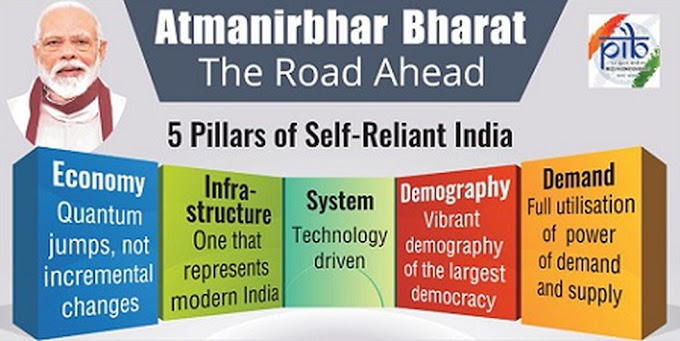Innovation and Mobile App Cold War between US, China May Disrupt the Semiconductor/IC Chip Market and Further Decouple the Nations Economies
Keywords: Semiconductor, IC-Chip Design, VLSI Technology, Technology Cold Ear
Semiconductor gear makers have to a great extent stayed quiet as the U.S. what's more, China raise an innovation cold war that could upset the IC chip advertise and additionally decouple the countries' economies.
In May, the U.S. fixed exchange limitations on China, requiring semiconductor producers utilizing U.S. gear to acquire an exceptional permit to offer to organizations, or "substances," boycotted by the United States. Chinese systems administration mammoth Huawei tops the U.S. elements list.
The new controls are explicit to Huawei and its associates and look to force a permit prerequisite on the exchange to Huawei and its offshoots certain semiconductor structures and gadgets that are the immediate results of U.S.- root plan programming or U.S.- inferred producing instruments. They don't force any new permit necessities on U.S. programming or assembling devices themselves.
There are more extensive ramifications, however, for the hardware business writ huge. U.S. organizations are as of now restricted from offering touchy innovation to substances related with the Chinese military (People's Liberation Army) as well as government, and the new standards grow the extent of "military end-employments."
Industry Experts told the U.S. trade limitations could hose creation gear deals to chip producers in China.
The fare controls may make a disincentive for the acquisition of U.S.- root hardware by putting a remarkable permit necessity on the immediate results of U.S.- birthplace gear which doesn't matter to the immediate results of comparable gear from other significant exchanging accomplices.
Driving gear creators reached for this article at first demonstrated they would say something regarding the new measures yet have since turned around course or not reacted to catch up demands. Some are in pre-income calm periods, however the subject is politically charged. The U.S. seems aim on obstructing China's entrance to innovation that would propel the country's semiconductor goals.
The effect up until now
In a meeting, Risto Pushaka, President of Chip Market Analyst VLSI Research said Equipment creators have so far endured the exchange storm, and the business overall is doing admirably despite the coronavirus and what has to a great extent become a gracefully chain bother.
The application procedure for U.S. trade control licenses is cumbersome, however up until this point, no licenses have been denied. "Now, the legislature is in the data gathering stage and the gear creators state they are acclimating to oblige the new principles. The overall inclination is: it's a problem."
VLSI has overhauled its creation gear estimate for 2020 to represent the coronavirus. All out income for 2020 was gauge at $82.7 billion, up 7.3 percent from the earlier year.
For the second 50% of the year, VLSI now expects Q3 and Q4 hardware deals to decrease 9 percent and 20 percent, separately. For the year, the worldwide hardware showcase is figure to reach $71.2 billion, down 7.6 percent from the earlier year.
Keywords: Semiconductor, IC-Chip Design, VLSI Technology, Technology Cold Ear
Semiconductor gear makers have to a great extent stayed quiet as the U.S. what's more, China raise an innovation cold war that could upset the IC chip advertise and additionally decouple the countries' economies.
In May, the U.S. fixed exchange limitations on China, requiring semiconductor producers utilizing U.S. gear to acquire an exceptional permit to offer to organizations, or "substances," boycotted by the United States. Chinese systems administration mammoth Huawei tops the U.S. elements list.
The new controls are explicit to Huawei and its associates and look to force a permit prerequisite on the exchange to Huawei and its offshoots certain semiconductor structures and gadgets that are the immediate results of U.S.- root plan programming or U.S.- inferred producing instruments. They don't force any new permit necessities on U.S. programming or assembling devices themselves.
There are more extensive ramifications, however, for the hardware business writ huge. U.S. organizations are as of now restricted from offering touchy innovation to substances related with the Chinese military (People's Liberation Army) as well as government, and the new standards grow the extent of "military end-employments."
Industry Experts told the U.S. trade limitations could hose creation gear deals to chip producers in China.
The fare controls may make a disincentive for the acquisition of U.S.- root hardware by putting a remarkable permit necessity on the immediate results of U.S.- birthplace gear which doesn't matter to the immediate results of comparable gear from other significant exchanging accomplices.
Driving gear creators reached for this article at first demonstrated they would say something regarding the new measures yet have since turned around course or not reacted to catch up demands. Some are in pre-income calm periods, however the subject is politically charged. The U.S. seems aim on obstructing China's entrance to innovation that would propel the country's semiconductor goals.
The effect up until now
In a meeting, Risto Pushaka, President of Chip Market Analyst VLSI Research said Equipment creators have so far endured the exchange storm, and the business overall is doing admirably despite the coronavirus and what has to a great extent become a gracefully chain bother.
The application procedure for U.S. trade control licenses is cumbersome, however up until this point, no licenses have been denied. "Now, the legislature is in the data gathering stage and the gear creators state they are acclimating to oblige the new principles. The overall inclination is: it's a problem."
VLSI has overhauled its creation gear estimate for 2020 to represent the coronavirus. All out income for 2020 was gauge at $82.7 billion, up 7.3 percent from the earlier year.
For the second 50% of the year, VLSI now expects Q3 and Q4 hardware deals to decrease 9 percent and 20 percent, separately. For the year, the worldwide hardware showcase is figure to reach $71.2 billion, down 7.6 percent from the earlier year.








0 Comments